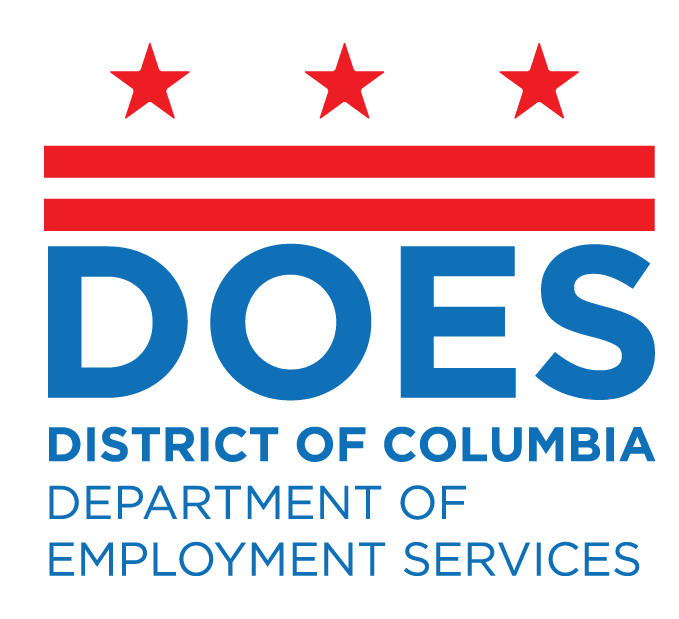What is an Issue Code 55?
When a new claim is filed, our automated system checks for wages in other states that may be in your base period. If wages are found, the system establishes an issue code 55 to be investigated. During this investigation, a claims examiner will determine if the wages in the other state could qualify you for a claim in that state or for a higher weekly benefit amount in the District of Columbia.
Part of the District’s responsibility is to ensure that we are accurately paying federally funded benefits to claimants. The District must verify if claimants are eligible in other states or if claimants have wages in other states.
With the implementation of the CARES Act, if wages are found in another state after a claimant has exhausted benefits and is seeking additional assistance from the District, an eligibility review is conducted to determine if a claimant can receive a regular claim in another state. Per federal law, we cannot pay PEUC or EB if a claimant is monetarily eligible for a regular UI claim in another state, regardless of the amount for which the claimant has been deemed eligible to receive.
What is a combined wage claim?
The Combined Wage Claim (CWC) program allows an unemployed individual with employment and wages in more than one state to combine his/her wages to establish a CWC under the law of a single state to qualify for benefits. A combined wage claim occurs when:
When a new claim is filed, our automated system checks for wages in other states that may be in your base period. If wages are found, the system establishes an issue code 55 to be investigated. During this investigation, a claims examiner will determine if the wages in the other state could qualify you for a claim in that state or for a higher weekly benefit amount in the District of Columbia.
Part of the District’s responsibility is to ensure that we are accurately paying federally funded benefits to claimants. The District must verify if claimants are eligible in other states or if claimants have wages in other states.
With the implementation of the CARES Act, if wages are found in another state after a claimant has exhausted benefits and is seeking additional assistance from the District, an eligibility review is conducted to determine if a claimant can receive a regular claim in another state. Per federal law, we cannot pay PEUC or EB if a claimant is monetarily eligible for a regular UI claim in another state, regardless of the amount for which the claimant has been deemed eligible to receive.
What is a combined wage claim?
The Combined Wage Claim (CWC) program allows an unemployed individual with employment and wages in more than one state to combine his/her wages to establish a CWC under the law of a single state to qualify for benefits. A combined wage claim occurs when:
- An individual has worked in multiple states during the claims base period; has not earned enough in wages in one of the states to become monetarily eligible and needs to combine wages in multiple states to become monetarily eligible. By combining wages with multiple states, an individual can potentially establish a higher weekly benefit amount.
- If the individual’s out of state wages will not increase their weekly benefit amount, they are not considered.
- If the individual is eligible for the state’s maximum weekly benefit amount, out of state wages will not be used.
- Since the most recent wages are not used in the current base period of a claim, these wages can be potentially used to establish a new benefit year in another state when the claimant has exhausted their benefits and is still unemployed.
When a Combined Wage Claim is filed, DOES performs the following:
- The claims examiner checks the system to see if the claimant has any out of state wages.
- If wages are found, we verify that the wages belong to the claimant.
- The claims examiner determines monetary entitlement for a stand-alone claim in DC and determines monetary entitlement by combining the DC wages with the other states’ wages.
- The claims examiner provides the claimant with their filing options. The claimant will be given the choice of filing a claim that will give the higher weekly benefit amount.
- If the individual choses to file a combined wage claim, the claims examiner will request the use of these wages by contacting the state.
The CARES Act, the CAA, and the ARPA provide additional extended benefits, PEUC and EB, for individuals who have exhausted their entitlement to regular unemployment compensation. However, you are not eligible for these benefits if you can file a combined wage claim, using your unused wages in the District and another state. If you file for these extended benefits, DOES will follow the steps shown above to determine if you can file a traditional claim in another state by combining your unused DC wages with your unused out-of-state wages. If you are eligible for a new traditional UI claim, DOES will perform the following:
- The claims examiner will send an electronic message (this is called a Withdrawal of Invalid Claim also known as a WIC) to the other state, requesting a backdate of your claim and an acknowledgement to honor any weeks that were certified in the District.
- The claims examiner will contact you by email to provide details for filing a claim with the other state. Please follow these instructions carefully.
- The claim must be filed over the telephone to receive the backdate.
